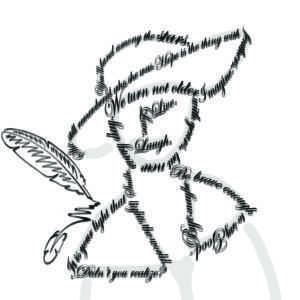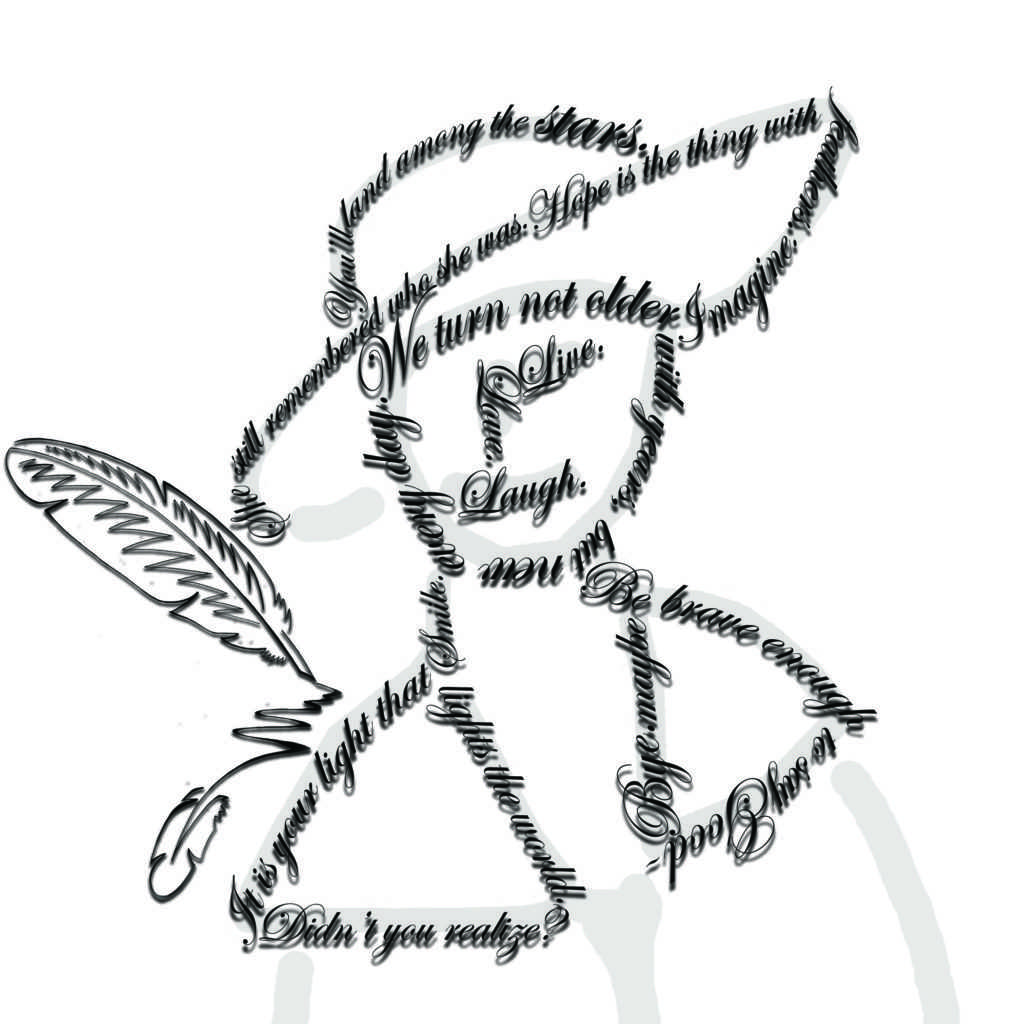Poet D. Allen is currently pursuing an MFA at the University of Minnesota. Brought to campus by the Stonewall Resource Center, the queer poet will give a reading of their work tonight in Mears Cottage. The S&B’s Mira Braneck sat down with them to discuss labels, process and inspiration.
The S&B: You’re giving a talk tonight called “Embody Poetics: Queering the Lyric Essay.” Can you tell me a little bit about what you’re going to be reading or discussing?
D. Allen: I’m an MFA grad student at the University of Minnesota, and I’m in my last year of the program here. So I’m working on a book related to that degree. It is a hybrid manuscript of lyric essays primarily, and also visual art. … I’m going to be reading a few of the lyric essays from that project, and showing the images that go along with them, and just talking about what hybrid forms mean to me, and how that relates to queerness and the gender, body and disability.
The S&B: You do a lot of writing about disability. What does that entail, what does that mean to you?
DA: This project has been through several iterations; I’ve been working on it since before I came to this grad program. It’s been evolving over the past … five years. It sort of emerged in response to my diagnosis with a connective tissue disorder about five years ago. That is a condition that is genetic, and I’ve had it since birth but didn’t start to notice symptoms until my early twenties and figure out what it was until my mid-twenties. When I was first diagnosed with that, being really interested in human language, one of the ways that I managed my grief over my illness and my changing body was by getting really curious about the disorder. … Not just the literal meaning of it — you know, connective tissue disorder is something that affects the stuff that holds us together — but also the metaphorical implications of that. I’m interested in not just exploring the condition literally in my texts, although that does happen, but also thinking about the balance between connections and connection that exists in my daily life, and by extension, I’ve been thinking about what holds us together. So looking at intimacy in all of its many forms, not just sex and sexuality but through human tenderness … and then disconnection in the form of illness or violence or an inability or unwillingness to understand how we bridge those gaps.
The S&B: In addition to disability and all that entails for you, what else would you say informs or inspires your work?
DA: The world. … I’m always trying to pay attention to whatever’s around me. One of the major shifts in this project that happens is maybe a year and a half or two years ago I realized I wasn’t just writing about my body and disability, I was writing, gathering everything I noticed. … I live in a city now, this is the biggest city I’ve ever lived in. Growing up in a rural area, North Carolina, is pretty different from that environment, and I’ve learned how to approach the city the same way I used to approach a wilder landscape — which is walking and observing and collecting things … and I write about those things, because I think that the focus of our attention really matters.
The S&B: Was there a moment where everything kind of clicked and you realized that you were a poet, or that you wanted to be writing poetry?
DA: I think it’s been a succession of moments. I think that the very first moment was that moment by the creek when I realized that I had something to say. And I remember that really specifically — that feeling of being out there. … I think I was nine. … I just remember feeling like; “Oh God, I’m so far from my pen and my paper, and I have something to say.” And I sort of trucked back home reciting it to myself in my head to make sure I wouldn’t forget. … But I think in my adult life … I identified as a poet in college, and was doing a lot of writing there to a degree, but when I graduated, I was coming out and figuring out queer stuff and gender stuff, and I sort of needed to take a break from this academic identity as a poet I had kind of cultivated.
The S&B: How do sexuality and gender inform your work?
DA: Partially through content — finding ways that feel right to me to write about gender and sexuality. It still doesn’t entirely feel comfortable to me. … I also think besides content, and something I want to talk about [today], is how to do that through form. For me, as a reader, the things that I really gravitate towards and love are things that resist definition and categorization. … I think that’s why the lyric essay has become really important to me. It’s sort of this malleable, shape-shifting container for all of the bits and pieces and fragments. … It’s sort of able to hold whatever I need it to. … Some of the work I’ll be showing tomorrow includes erasure poems that I make out of entries in the dictionary, and I think that is a really queer process, for me. It’s like taking definitions and making them for my own purposes.































































